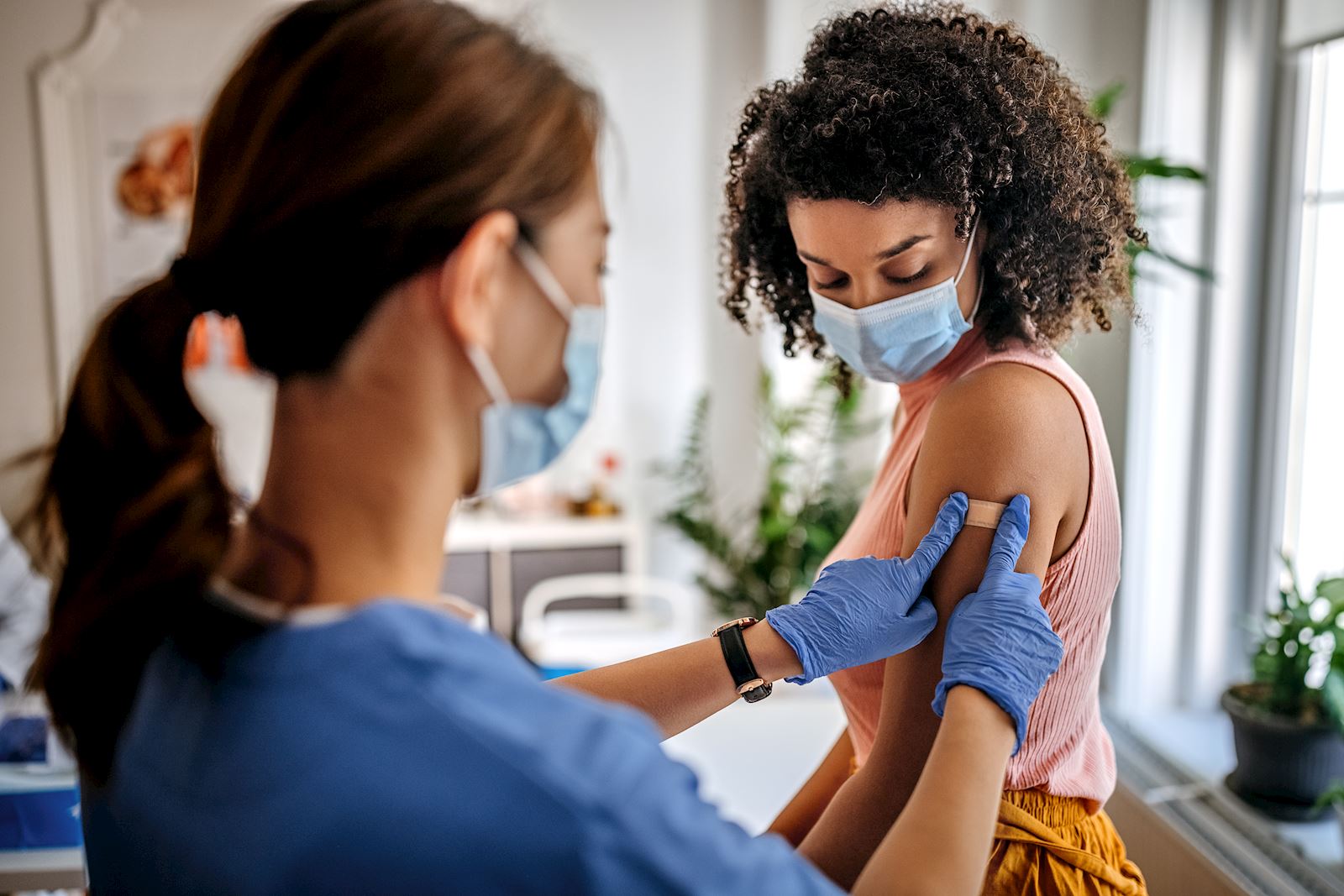You might feel invincible, but a regular check-up can catch health problems you didn't know were there — or know were coming.
Posted
by Featured Provider Michael Sinklier on Friday, February 12, 2021

Throughout childhood, everyone else took care of you. Schools required vaccines and had nurses to help you during the day. Sports mandated annual physicals. Parents scheduled it all and took you in when you got sick. It was so easy (for you)!
As an adult, your health is in your own hands. You can no longer rely on everyone else. You don’t have school, sports or mom to prompt your check-ups — even though regular visits to the doctor are still important.
“The goal for primary care providers is to help patients live a great life by optimizing their health," says Michael Sinklier, DO, a Family Medicine physician at The Iowa Clinic's North Ankeny location.
I feel fine. Why do I need a doctor?
You’re young. You’re healthy. But you are not invincible.
At some point, you will get sick or injured. You need a primary care provider who knows you and understands your medical history to guide you through health care decisions.

Not sure where to start?
Our Patient Communication Coordinators are available to listen to your needs and help find the right provider for you. Give us a call at 515.875.9200 – Tuesday through Friday 8:30am to 4:30pm.
Primary care providers keep you healthy.
Establishing a relationship with a primary care provider creates continuity of care, meaning you have someone else watching out for your health.
“We’re in your corner and serve as a point person for all your health care,” says Dr. Sinklier. “Primary care providers are the ones you see for wellness visits and also when something’s wrong.”
When your treatment requires other health professionals, they refer you to specialists and follow up on your care. Developing a relationship with your provider can help put your mind at ease when health-related issues come up.
Regular check-ups catch problems early.
Like your home, car or bike, your body needs regular checks and maintenance to stay in peak condition. Your height, weight, heart rate and blood pressure are checked at every office visit to establish your baseline health. Questions about your family history, diet, exercise, prescriptions, alcohol and tobacco use and other lifestyle habits are commonly asked as part of your medical history. Anything out of the ordinary alerts your care team to potential health issues, so you can take steps to prevent them.
Makes sense. So I should get an annual physical?
In short – yes. The frequency and types of tests done at your annual wellness appointment can be discussed with your primary care provider. And while the annual check-up is still common practice, your doctor may want to see you more (or less) often, depending on your health. Chances are, your visit won’t always include a comprehensive physical exam. Instead, you’ll check in with your doctor and update them on any changes in your health. They may run preventive tests based on your answers and your age.
Regular check-ups with your provider also strengthen the doctor-patient relationship and help in maintaining your health. Infrequent visits make it harder for both of you to remember when symptoms started or if a health event in the past is playing a role in your current condition. Even if nothing’s wrong, there’s a benefit to talking to your doctor regularly. There’s more time to ask questions or get guidance on improving your overall wellness.
What health checks do I need at my age?
You’re in control of your health. Watch it carefully. Monitor changes in your body, keeping tabs on when symptoms start and how long they last. Be on the lookout for changes in your skin, pain, dizziness, fatigue, trauma or distress, anxiety or depression, sleeping problems and general feelings of wellness. Talk to your doctor as soon as you have concerns.
As you get older, the preventive tests and screenings increase, along with overdue or age-appropriate inoculations such as tetanus boosters and the shingles vaccine.
“Your primary care physician can help manage what tests and screenings are needed by age to take that burden off the patient. Having that relationship and baseline of patient health history is key to knowing when additional tests are needed,” says Dr. Sinklier. “Prevention or early detection is key.”
Stay current on your vaccines.
It’s important to stay up-to-date on your immunizations. Shots protect you against illness and disease. For many diseases, a single shot provides immunity. The flu shot is the only annual vaccination you may need since the most common strains change every year. Here’s the recommended vaccination schedule for adults 19 and older (pulled from the CDC).
| Vaccine |
19-21 years |
22-26 years |
27+ years |
| Influenza |
1 dose annually |
| Tdap or Td |
1 dose Tdap, then Td or Tdap booster every 10 yrs |
| MMR |
1 or 2 doses depending on indication (if born in 1957 or later) |
| VAR |
2 doses (if born in 1980 or later) |
| HPV |
2 or 3 doses depending on age at initial vaccination or condition |
|
| PCV13 |
1 dose |
| PPSV23 |
1 or 2 doses depending on indication* |
| HepA |
2 or 3 doses depending on vaccine* |
| HepB |
3 doses* |
| MenACWY |
1 or 2 doses depending on indication, see CDC for booster recommendations |
| MenB |
2 or 3 doses depending on vaccine and indication, see CDC for booster recommendations |
| Hib |
1 or 3 doses depending on indication |
Check yourself for cancer.
Monthly checks of the skin, testicles and breasts can spot the signs of cancer before it progresses. Changes in the appearance of your skin — like skin color or the size and shape of a mole — should prompt a skin cancer screening. Men should be screened for testicular cancer to look for lumps or abnormalities.
Women may benefit from a clinical breast exam if changes are noticed during regular self-examinations. Additionally, a Pap test and pelvic exams that check for signs of cervical cancer should be performed in women every three years starting at age 21 until they hit retirement age.
Take an STD test.
You can’t assume that you’ll be screened for sexually transmitted diseases as part of a regular check-up. Be honest with your doctor about your sexual activity. If you’re sexually active and you or your partner have had multiple partners, you should be tested for STDs. The CDC recommends HIV tests for all adults at least once, and a variety of screens depending on your age, gender and sexual activity.
Get your eyes checked.
An annual vision exam is often covered by insurance. If you have this benefit, take advantage. At minimum, you should get a complete eye exam at least once in your twenties. If your family has eye problems or you experience changes in your vision, you should get your eyes checked more often.
The body is a complex beast. And so is health care. Finding a primary care provider and building a health partnership is one of the most important things you can do maintain your good health.
So do it while you’re still young.